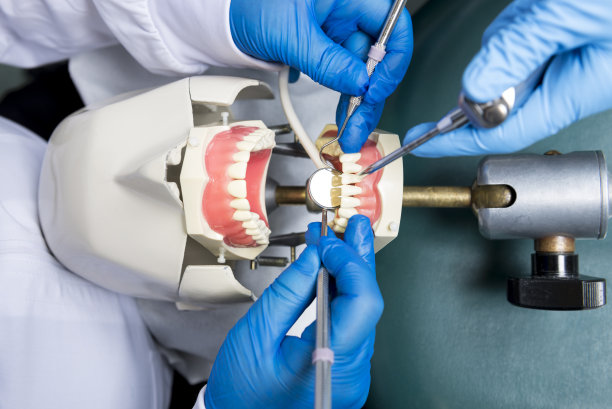Essential Guidelines and Safety Measures to Consider Before Undergoing Dental Implant Procedures for Optimal Recovery and Success
Summary: Dental implants have become a pivotal solution for individuals seeking to restore their smiles and improve oral function. However, ensuring optimal recovery and success from this procedure requires careful consideration of essential guidelines and safety measures. This article outlines four crucial aspects that patients should be familiar with before undergoing dental implant procedures: the importance of selecting the right dental professional, understanding the pre-operative assessments, recognizing post-operative care needs, and adhering to lifestyle changes for long-term success. Emphasizing these elements can significantly enhance the recovery process and increase the likelihood of achieving desired outcomes from dental implant treatments.
1. Importance of Choosing the Right Dental Professional

Selecting an experienced dental professional is the first and most critical step in the dental implant journey. It is essential to research and choose a specialist with adequate qualifications and extensive experience in implantology. This ensures that the procedure is handled with utmost skill and precision, thus minimizing potential complications.
Additionally, dont hesitate to ask for recommendations from friends, family, or your current dentist. A dentist who specializes in implants should possess a profound understanding of both surgical techniques and the unique anatomical considerations involved, which significantly impacts the success of the implant.
Moreover, patients should review testimonials and patient outcomes from the dental office. Seeing previous results can provide important insights into the quality of care given by the professional, ensuring that they align with your personal needs and comfort levels.
2. Understanding Essential Pre-operative Assessments
Before undergoing dental implant surgery, patients must undergo a comprehensive pre-operative assessment. This often includes dental X-rays or 3D imaging to evaluate bone density and the overall structure of the jaw. This information is crucial, as it helps determine if the bone is sufficient to support the implant.
Moreover, assessing medical history is vital in understanding any underlying conditions that may complicate the surgery or recovery. Its crucial to inform the dental professional about medications being taken or allergies, as these factors can influence both the procedure and healing process.
Lastly, ionization tests or blood tests may also be necessary to gauge overall health and readiness for surgery. Being informed about one’s health status establishes a safer environment for the procedure and lays the foundation for a successful recovery.
3. Recognizing Post-operative Care Needs
Post-operative care is a critical component of successful recovery following a dental implant procedure. Patients must follow the dentist’s instructions meticulously to ensure proper healing. This often includes guidelines on pain management, such as prescribed medications, and dietary restrictions following surgery.
Furthermore, patients should be diligent about maintaining oral hygiene. This includes gentle brushing and rinsing of the mouth to keep the surgical site clean and to prevent infections. Avoiding tobacco and alcohol consumption is also crucial during recovery, as these substances can significantly hinder the healing process.
Regular follow-up appointments are essential to monitor the healing process and make any necessary adjustments. These visits provide an opportunity for the dental professional to assess the implant and identify any potential issues before they escalate.
4. Adhering to Lifestyle Changes for Long-term Success
Post-surgery, adopting lifestyle changes can significantly enhance the longevity and success of dental implants. Maintaining a balanced diet rich in vitamins and minerals supports overall health and contributes to jawbone healing. Foods high in calcium and vitamin D are particularly beneficial.
Additionally, regular exercise can improve circulation and boost the immune system, further aiding recovery. However, patients should avoid high-impact activities right after surgery, as these can disrupt the healing process.
Finally, committing to a rigorous oral hygiene routine is essential. Regular dental check-ups, combined with consistent brushing and flossing, will help preserve the health of the implant and surrounding teeth, prolonging its lifespan and maintaining oral health.
Summary: The journey through dental implant procedures is complex and requires careful attention to multiple aspects for successful outcomes. From selecting the right professional to ensuring effective pre-and post-operative care while adopting healthier lifestyle choices, each step plays a crucial role in recovery. Being proactive about these guidelines aids in achieving optimal results.
This article is compiled by Vickong Dental and the content is for reference only.



